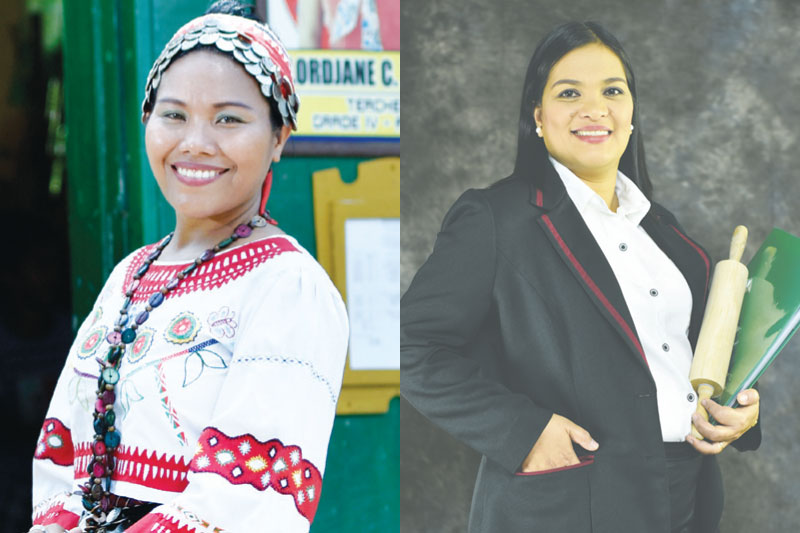Educators protect culture, ensure no one is left behind

Lord Jane Dordas & Bernadeth Gabor
With the fast-paced lifestyle that the world has come to know these days, there are those who have to play catch-up to ensure that they are not left behind.
For educators Bernadeth Gabor and Lord Jane Dordas, this means having to make a lot of sacrifices to ensure that what they value most will not be forgotten with the passing of time.
Gabor and Dordas are two of the four honorees of this year’s “The Many Faces of the Teacher” campaign, an initiative of Bato Balani Foundation and Diwa Learning Systems that pays homage to educators whose teaching feats help transform students and communities.
Gabor, dean of the Bataan Peninsula State University (BPSU) College of Technology, was recognized for her commitment to provide education to detainees at the Bataan District Jail.
Meanwhile, Dordas, a public elementary school teacher from Capiz, was honored for her efforts to preserve the culture of their tribe in her hometown.
The two were chosen from hundreds of teachers who went beyond their duties inside the classroom to contribute to nation building by sharing knowledge and opening opportunities to students of all ages.
Life after detention
It was in 2007 when Gabor, a teacher of hotel and restaurant management at BPSU, was asked by a friend working at the district jail to help them in a livelihood program.
She says she was initially apprehensive, knowing that she had to conduct classes in front of inmates.
“Of course I was terrified, but I accepted the challenge,” she said in Filipino.
Moments after conducting her first training on bread and pastry production, she quickly realized that her fears had been unfounded.
“I learned that not all of those who are in jail are bad. Many of them are hopeful that there will be life after detention,” she recalls. “We need to accept them, we need to support them.”
What started as a single livelihood training program for inmates has become a full-blown program supported by different government agencies and other organizations.
Gabor, who used to be the lone mover of the initiative, has now enlisted the help of about 50 fellow volunteer-educators to provide inmates with skills training on food and beverage services, housekeeping, rescue and first aid, automotive, welding and refrigeration, among others.
Many of their former students who were detained are now working and helping them expand the program.
“It’s inspiring that they are returning and are helping me with the project,” she says, adding that this only demonstrates that an episode of imprisonment does not have to be the end of the line.
“We should not condemn them. We should support them so they won’t end up back in jail again,” adds Gabor.
Saving a dying culture
For her part, Dordas says her campaign to preserve their culture is literally a matter of life and death.
“Our traditions are dying along with our elders,” she says in Filipino. “I would like to make sure that we pass it on to the next generation.”
A member of the Panay-Bukidnon tribe known for binukot, or women secluded from the community to learn the tribe’s lore, Dordas worked to preserve the slowly vanishing culture by documenting native games, songs, dances, handicraft and food, among others.
She also supports the use of the indigenous people education curriculum framework to ensure that local tradition and culture are integrated into school subjects.
For Dordas, changes in society, particularly due to technological advances, should not stop people from understanding their identity and where they come from.
“We should not live just in the present,” she says. “Our tradition and culture tell us who we were. They teach us values that many are forgetting nowadays.”
Dordas is not against integrating old traditions with new ones, saying this is inevitable.
“It is alright to connect the present to the past. We cannot just live (in the past) because the environment is changing,” she adds, citing the use of technology as a way to effectively document their culture as an example.
Dordas says she hopes to establish a museum about their culture in the future, admitting that they have a long way to go before they can fully achieve their goal.
“But we are determined to keep going,” she says.
- Latest
- Trending














